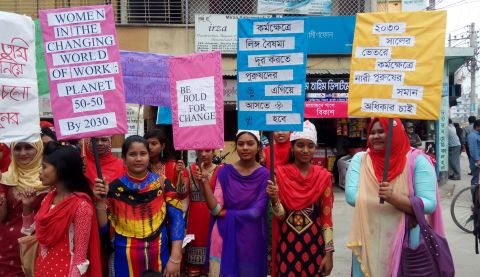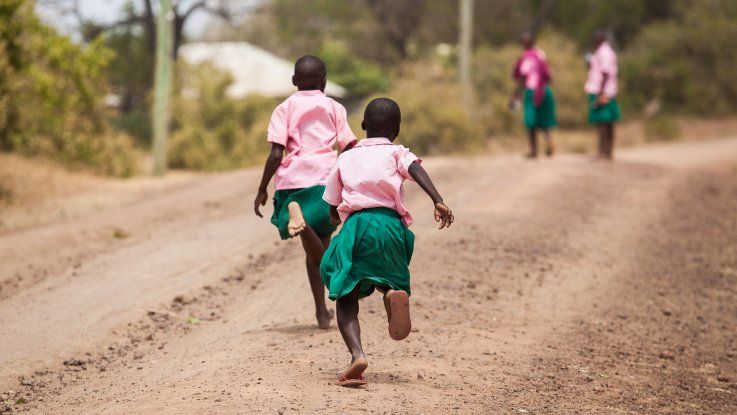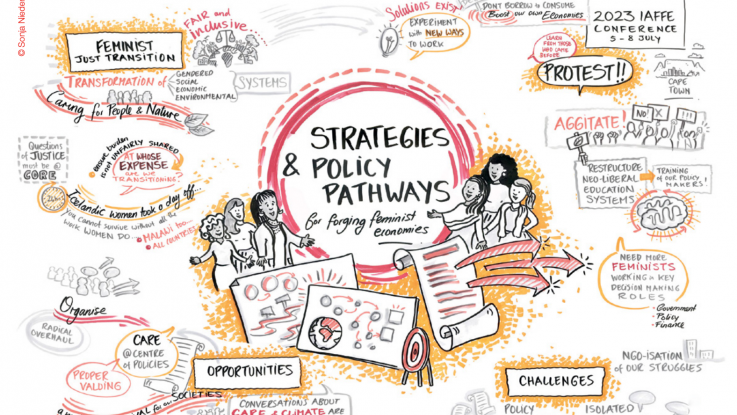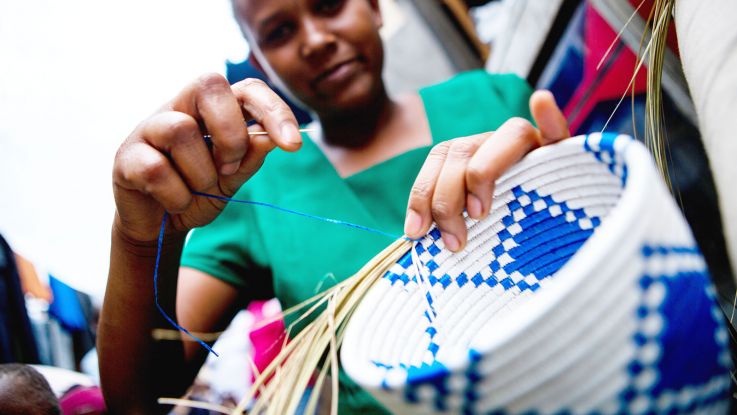London Fashion Week and the violent side of fashion
19 February 2019
With London Fashion Week coming to a close and Milan Fashion Week about to begin, ActionAid looks at the mountain of human rights abuses that garment workers still face everyday in the ugly business of fast fashion.

ActionAid works to help end the abuse of human rights in fast fashion. Photo: ActionAid
Since the horrendous 2015 Rana Plaza factory collapse in Bangladesh that killed over a thousand women making clothes for global brands such as H&M we’ve seen some improvements, largely thanks to hard-fought campaigning by trade unions, women’s rights organisations and the public. Consumers are also now much more aware of the human cost of cheap clothes.
But there is still much more to do, and this is only one side of the battle for women’s rights globally.
In some of the poorest countries in the world 75% of all jobs for women are informal with vulnerable working conditions. Many young women working in factories still face long hours, low pay, poor conditions, no contracts and a lack of opportunity to negotiate employment rights. All of which are made worse through sexual harassment and exploitation.

After a building collapse in Savar, Bangladesh, a team from ActionAid Bangladesh reached the spot to support garment workers .
Human rights and fast fashion
Over half of the women interviewed by ActionAid Cambodia say they have experienced or witnessed harassment at work, including bullying from peers and managers.
This type of normalisation of violence against women and girls - which triggers feelings of shame and self-blame as well as the fear of stigma and not being believed - has led to widespread under reporting, with people believing reporting would be pointless.
Violence against women and girls is one of the most widespread human rights abuses, affecting on average one in three women and girls worldwide. If we seriously want to tackle violence against women and girls in our society, we need to stop perpetuating the message that sexual harassment, especially in the workplace, is acceptable.

Garment workers in Savar, Bangladesh .
ActionAid does this by empowering women and girls to claim their rights within their communities and in their places of work and encouraging them to report any violence they face.
We also support local grassroots activists that work closely with entire communities to challenge the social norms that perpetuate this violence. And we lobby governments to provide more specialist services to help survivors access justice, provide better public services to prevent and respond to violence, and increase resources for women’s rights organisations to support training in the skills needed for economic participation.

Members of a Climate Resilient Sustainable Agriculture (CRSA) meeting in Bangladesh .
The garment industry’s low-skill, low-pay business model, combined with deep-rooted gender discrimination and poor living conditions, traps women in a cycle of poverty, exploitation, and abuse – meaning that some are literally dying for fashion and corporate profit.
Every woman and girl should have the right to fulfil their potential, live without fear of attack and be able to access justice. Share this blog and help say no to violence in fashion.

Garment factory workers from factories in Phnom Penh, Cambodia protest for their rights .



